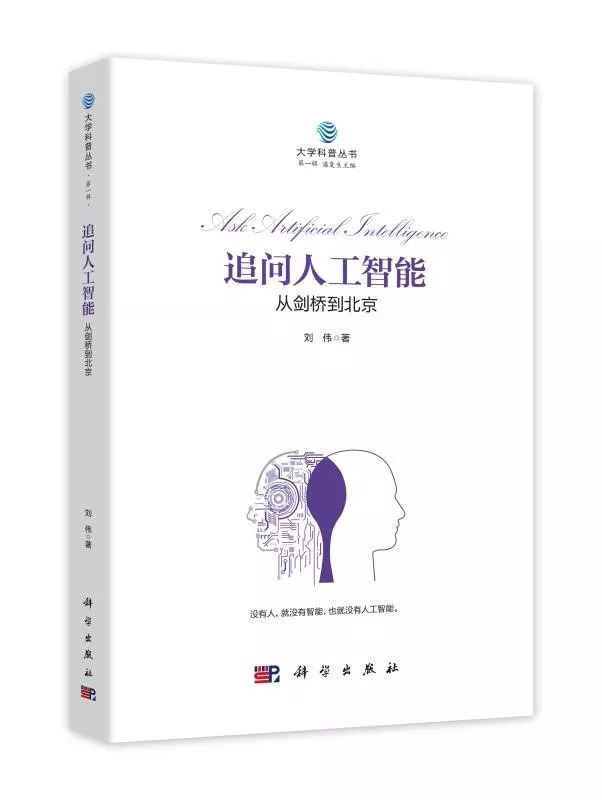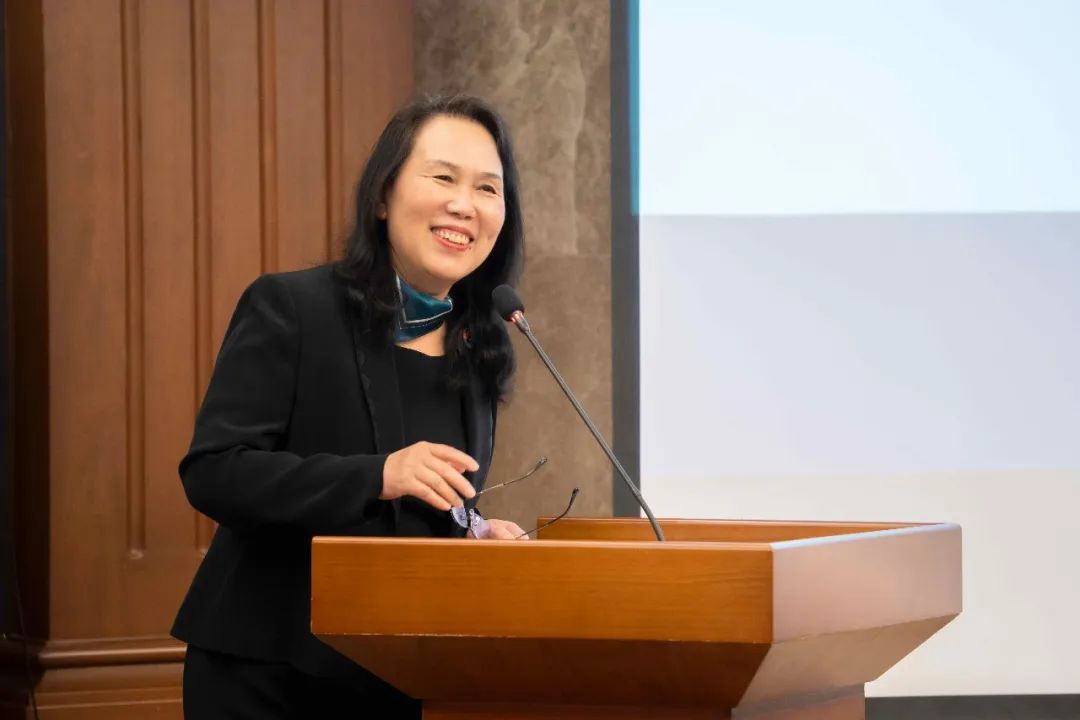Strengthening The Ethical Governance Of Artificial Intelligence Requires "both Soft And Hard"
Strengthening The Ethical Governance Of Artificial Intelligence Requires "both Soft And Hard"
At the National Science and Technology Conference, the National Science and Technology Awards Conference, and the Academicians of the Two Academies, General Secretary Xi Jinping made an in-depth explanation of the technological power that our country wants to build, and proposed that five basic elements must be possessed.
Lu Yangxu
At the National Science and Technology Conference, the National Science and Technology Awards Conference, and the Academicians of the Two Academies, General Secretary Xi Jinping made an in-depth explanation of the technological power that our country wants to build, and proposed that five basic elements must be possessed.
Among them, "having a strong scientific and technological governance system and governance capabilities to form a world-class innovation ecosystem and scientific research environment" is one of the five basic elements. General Secretary Xi Jinping’s important speech profoundly clarifies the importance of strengthening the construction of science and technology governance system and governance capacity in the new era, and further clarifies the strategic goals to be achieved in the construction of science and technology governance system and governance capacity. The science and technology ethics governance system is an important part of the science and technology governance system, and it is also an important guarantee for ensuring the development of artificial intelligence towards goodness and providing sustained, healthy and strong momentum for Chinese-style modernization construction.
Governance faces new situations and new tasks
In recent years, my country has attached great importance to and actively promoted the ethical governance of artificial intelligence and achieved remarkable results. A series of measures include establishing the National Science and Technology Ethics Committee and the Artificial Intelligence Ethics Sub-Committee, issuing the principles of the new generation of artificial intelligence governance, promoting the construction of laws and regulations related to the ethics governance of artificial intelligence, innovating the policy tools for the ethics governance of artificial intelligence, and participating in global dialogue and cooperation on artificial intelligence ethics governance. It should also be seen that, in line with the goal of "having a strong scientific and technological governance system and governance capabilities", and in contrast to the rapid development and widespread application of artificial intelligence, my country's current construction of artificial intelligence ethical governance system and governance capabilities is facing a new situation and new tasks are urgently needed.
First, we must more comprehensively and accurately identify the impact of artificial intelligence and its ethical implications. Identifying and evaluating impacts is the prerequisite for the ethical governance of artificial intelligence. What impact will the widespread application of artificial intelligence have, in what aspects will it have, how different impacts are generated and transmitted, and what ethical challenges will be brought about by various impacts are not clear. At the same time, in many application scenarios of artificial intelligence technology, my country has actually played the role of a pioneer and has not much ready-made experience to learn from. Therefore, in the new era, we must strengthen the theoretical and method research on artificial intelligence impact assessment, continue to enrich governance practices, and strive to form Chinese experience and Chinese solutions for artificial intelligence ethical governance.
Second, we must pay more attention to ethical issues in the practice of artificial intelligence governance. Governance methods and governance tools are in line with ethical norms and are inherent in the issue of a strong scientific and technological ethical governance system and governance capabilities. With the increase in the number of rules, tools and practices of AI governance, the ethical issues of these activities themselves become increasingly prominent. The essence of these problems is whether the AI governance practice complies with ethical norms, that is, whether artificial intelligence governance is carried out in an ethical way. To strengthen the construction of the ethical governance system and governance capacity of artificial intelligence in the new era, we must attach great importance to ethical review and ethical reflection on the practice of artificial intelligence governance.
Third, we must improve the effectiveness of the artificial intelligence ethical governance system. In recent years, my country has actively promoted the construction of laws and regulations on the ethical governance of artificial intelligence, and the number of "hard methods" and "soft methods" involving the ethical governance of artificial intelligence has gradually increased, and diversified governance mechanisms and policy tools have been derived. However, the gradually complex rules, the participation of multiple subjects, and the increasingly abundant policy tools have also increased the complexity of the governance system and increased the risk of synthetic fallacies and the overall effectiveness of the governance system declined. Therefore, it is necessary to further optimize the governance system, clarify the responsibilities and obligations of each participant, strengthen cross-departmental and cross-field coordination and cooperation, improve the effectiveness and pertinence of policy tools, and ensure the efficient operation of the artificial intelligence ethical governance system.
Fourth, we must enhance the international influence and leadership of artificial intelligence ethical governance. International influence and leadership are important contents of strong artificial intelligence ethical governance capabilities. In recent years, my country has actively participated in bilateral and multilateral dialogue and cooperation in the ethical governance of artificial intelligence, issued the "Global Artificial Intelligence Governance Initiative", and advocated strengthening international cooperation in the construction of artificial intelligence capacity, and has worked with other countries to promote the construction of global artificial intelligence ethical governance system and governance capabilities. While continuing to contribute Chinese strength and Chinese wisdom to global artificial intelligence ethical governance, it has also effectively enhanced my country's influence in the field of global artificial intelligence ethical governance. However, there is both extensive cooperation and competition in the field of global artificial intelligence ethical governance. my country's influence and leadership in global artificial intelligence ethical governance is still not commensurate with my country's position in the development and application of global artificial intelligence technology and needs further strengthening.
Take multiple measures to improve operability
In the new era, how to strengthen the construction of my country's artificial intelligence ethical governance system and governance capabilities? On the one hand, we must fully understand the connotation of the ethical issues of artificial intelligence and the key factors affecting ethical governance practices, and ensure that the construction of the governance system and governance capacity complies with the requirements of the laws and the actual situation; on the other hand, we must highlight problem-oriented approach, grasp the key points in the construction of the governance system and governance capacity, and the breakthrough points in the reform work, and strive to improve the pertinence and operability of the work. Specifically, we can make efforts from the following six aspects.
First, improve the legal and regulatory system for the ethical governance of artificial intelligence. On the one hand, we will clarify the boundaries of the ethical issues of artificial intelligence and the division of rights and responsibilities of different subjects in the research and development and application of artificial intelligence in the form of laws and regulations, and make dynamic adjustments to them in a timely manner according to actual conditions; on the other hand, we will use laws and regulations to constrain the ethical governance practice of artificial intelligence to ensure that ethical governance practice complies with legal provisions and ethical norms.
The second is to improve the ethical review mechanism of artificial intelligence. Accelerate the improvement of the system and ethical review standard system of artificial intelligence; strengthen the construction of professional ethical review talent team through various methods such as business training; strengthen the capacity building of ethical review institutions by standardizing the personnel composition and review process of review institutions, and improve the quality of ethical review; optimize the standards for the classification of artificial intelligence ethical risk grading and classification, and establish a matching ethical review and supervision work mechanism; further increase the transparency of ethical review work, and better play the guiding role of ethical review.
The third is to establish a multi-dimensional supervision mechanism for the ethical issues of artificial intelligence. Further optimize the division of labor and cooperation mechanism of various supervision methods such as government supervision, industry self-discipline, and public supervision, enhance the timeliness and effectiveness of supervision work, and improve supervision efficiency; support artificial intelligence enterprises and R&D institutions to jointly formulate and jointly abide by industry ethical standards, and give full play to the role of self-discipline mechanisms; improve the public's attention and understanding of artificial intelligence ethical issues, and enhance the public's ability to participate in the ethical supervision and governance of artificial intelligence in an orderly manner.
Fourth, strengthen artificial intelligence ethics education. Support institutions engaged in the research and development of artificial intelligence technology to carry out ethical training for R&D personnel, encourage artificial intelligence product and service providers to strengthen communication with users on ethical norms in specific application scenarios; in primary and secondary school science and technology courses, appropriately add content related to artificial intelligence ethics topics, and use artificial intelligence ethics courses as a compulsory course for undergraduates and graduate students in related majors and elective courses for all college students; strengthen the education on artificial intelligence ethics norms and knowledge popularization for the whole society.
Fifth, strengthen research on the ethical issues of artificial intelligence and governance effects. Carry out artificial intelligence social experiments forward-looking, support government, industry, academia and research to jointly carry out systematic research in identifying the economic and social impact of artificial intelligence, and evaluate the effectiveness of policy interventions; support differentiated ethical governance mechanism exploration and tool innovation in various application scenarios, and enhance the agility and resilience of the ethical governance system.
Sixth, actively participate in global artificial intelligence ethical governance. Promote dialogue and cooperation on the ethical governance of global artificial intelligence with the United Nations at the center; focus on the ethical governance of artificial intelligence, actively carry out bilateral and multilateral exchanges and cooperation, share best practices, jointly support relevant research, collaborate in formulating governance rules, and work with other countries to promote the construction of global artificial intelligence ethical governance system and governance capabilities.
(The author is a researcher at the China Academy of Science and Technology Development Strategy)





